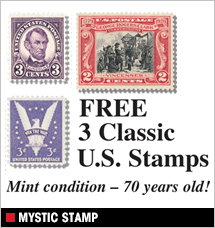
Are savings bonds part of your retirement? They don’t make headlines these days and you don’t hear much about them. But collectively, Americans still own about $175 billion worth of savings bonds. The weird thing about this is: $16 billion worth of the bonds have matured, which means they no longer earn interest. Yet, the Treasury Department reports that they have not been cashed. Why not? It’s believed that in many cases, the bondholders are deceased, and many of the beneficiaries don’t even know they exist.
Could You be One of those Beneficiaries? You can check for bonds that might’ve been purchased by your deceased loved one, if you have his or her Social Security number (but only for EE Bonds issued in or after 1974). Go online to: Treasury Department at http://www.treasurydirect.gov/indiv/tools/tools_treasuryhunt.htm. If you’re currently a bondholder, it’s important to make sure someone you trust (possibly your attorney) or a family member or friend knows you have the bonds. In fact, financial planners recommend that you have a written inventory of your bonds, which will come in handy for other purposes too.
You can simply make a list of the bonds and important details on paper, or on a computer spreadsheet, or using an online bond management account. Just be sure that the person you trust with your bond information has access to the inventory, in case something happens to you.
What Should You Record in Your Bond Inventory? For a complete record you’ll need the series, denominations, issue dates, and serial numbers. It’s also a good idea to make a copy of each of your bonds to keep in your files. Having an inventory — especially with copies — is important, in case bonds are lost, stolen, or destroyed. If you use a paper system keep a copy in your safe deposit box or some other offsite safe place, probably where you keep your estate records and your will. If you create a file in your computer, be sure to have it backed up.
Here are three online sites where you can create an inventory online:
- SavingsBond.com (includes a back-up feature)
- Treasurydirect.gov (and type in savings bonds)
- Savings-bond-advisor.com
Bonds as Part of Your Retirement
Some people purchase and hold bonds as a way to set aside money and be able to avoid dipping into retirement accounts, if cash should be needed. No taxes are paid on the earnings until the time you redeem the bonds. If you hold them until after you retire, your tax rate might be lower, so some see this as a safe way to sock away money. Bonds are like an IOU from the fed, considered secure because they are backed by the full faith and credit of the United States government. However, unlike most bank accounts, they are not FDIC-insured (that is insured by the Federal Deposit Insurance Corporation, for up to $250,000).
Which Bond to Redeem First?
When it comes time to redeem a bond, how do you know which one to cash? Some people grab the oldest bond. But that’s not always the bond that will pay the best. The Treasury Department supplies a tool you can use to compare bonds to see which would best meet your needs http://www.treasurydirect.gov/indiv/research/indepth/ebonds/res_e_bonds_eecomparison.htm.
You can view your bonds 24/7 online at Treasurydirect.gov, as well as purchase new bonds. If you want to know what the tax implications of cashing a bond will be, consult your tax adviser, or contact the IRS and ask for Publication 3 or Publication 15.
Compared to many investments, bonds aren’t exciting and may even be met with yawns. But in general, they are a safe and flexible way to access funds in retirement. If that appeals to you, ask about bonds at your bank or visit TreasuryDirect.gov.
Suppose You Inherit a Bond. What Then?
If you are named as the survivor on the face of the bond, just take it to a bank with proper ID. It’s a good idea to call the bank first to ask what kind of ID they will require.
But what if you inherit a bond that does not have your name on the face of it or has someone else’s name on it? Here’s what the Treasury Department says.
Find out if:
- The estate hasn’t been and won’t be administered through the court.
- The estate hasn’t been and won’t be settled through the state law relating to small estates.
- The bonds in the estate are worth no more than $100,000 in redemptive value on the date of death.
If all of these conditions are true, you’ll need to print and fill out form PDF 5336 (download or order), then send it and a copy of the death certificate of the person who owned the bond, and mail the package to: Treasury Retail Securities Site, PO Box 214, Minneapolis, MN 55480-0214.
For bonds where a court or state law is involved or that total more than $100,000 in redemption value, you’ll need to contact the Treasury Department at http://www.treasurydirect.gov/indiv/research/indepth/ebonds/res_e_bonds_eedeath_eecourtappointed.htm.
Teresa Ambord is a former accountant and Enrolled Agent with the IRS. Now she writes full time from her home, mostly for business, and about family when the inspiration strikes.



























































